More than a quarter of Londoners say they are now more likely to cycle following the recent Tube strike disruption.
As large parts of the London Underground were closed for five days at the start of September, cycling journeys and hire bike use soared with images of packed cycle lanes making news stories and attracting plenty of attention online.
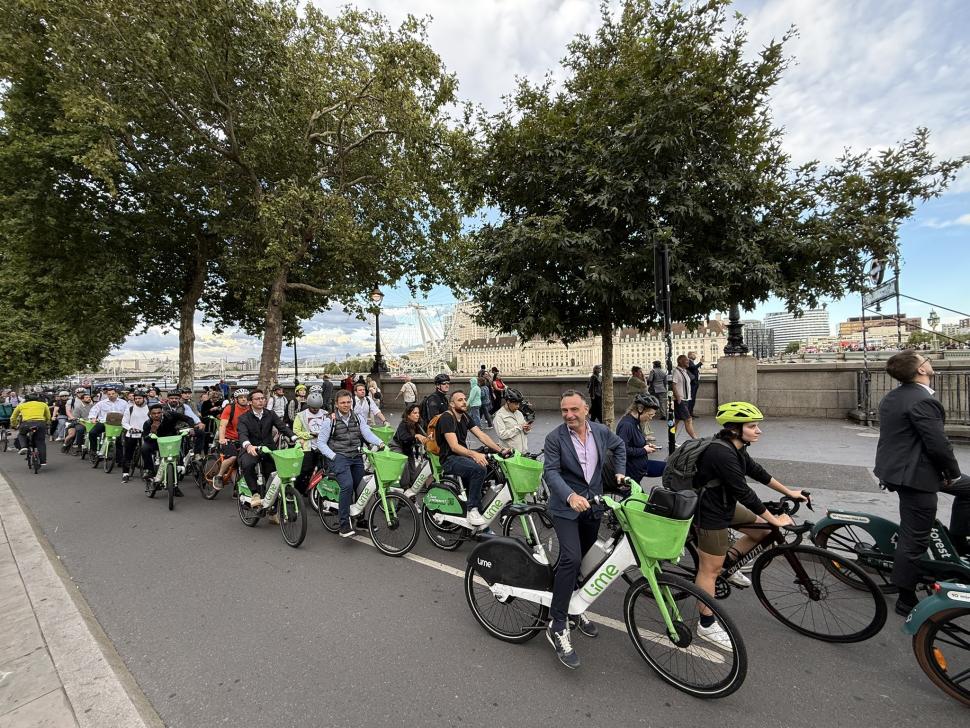 Cyclists in London during Tube strike (credit: Joshua Garfield)
Cyclists in London during Tube strike (credit: Joshua Garfield)
New data from Lime and YouGov, shared with The Standard and the result of a survey of 1,027 Londoners, found that 28 per cent of people are now more likely to consider cycling in the future.
> Stranded by Tube strikes? Try one of these London cycling routes instead
Electric hire bike provider Lime said its bikes’ usage was up 74 per cent by the Wednesday of strike week, rising steadily through the first few days as more people turned to their e-bikes to get to work. Average trip duration and length were also up by more than a third.
Of those surveyed, 21 per cent said they had cycled during the strike, the even greater 28 per cent headline figure suggesting that the week of Underground closures and booming bike use has also turned the heads of some who did not use bikes that week.
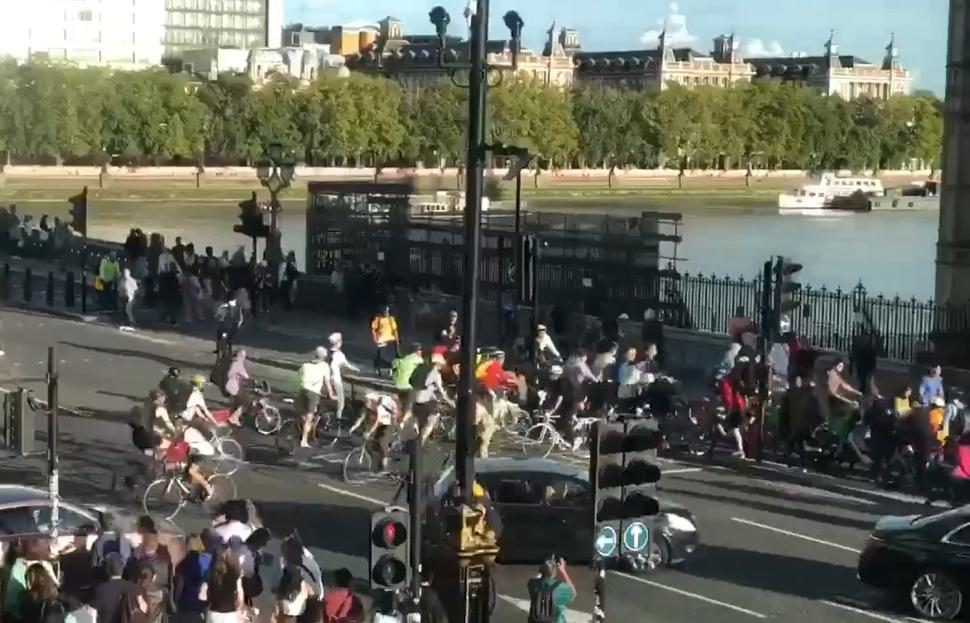 Cyclists in London during Tube strike (credit: Adam Tranter)
Cyclists in London during Tube strike (credit: Adam Tranter)
Lime’s public affairs manager Alice Pleasant said the massive surge in cycled journeys showed “just how far London has come as a cycling city”. Likewise, another electric hire bike provider Forest admitted that the increased demand had “exceeded our expectations”, even if it some level of spike in use was anticipated.
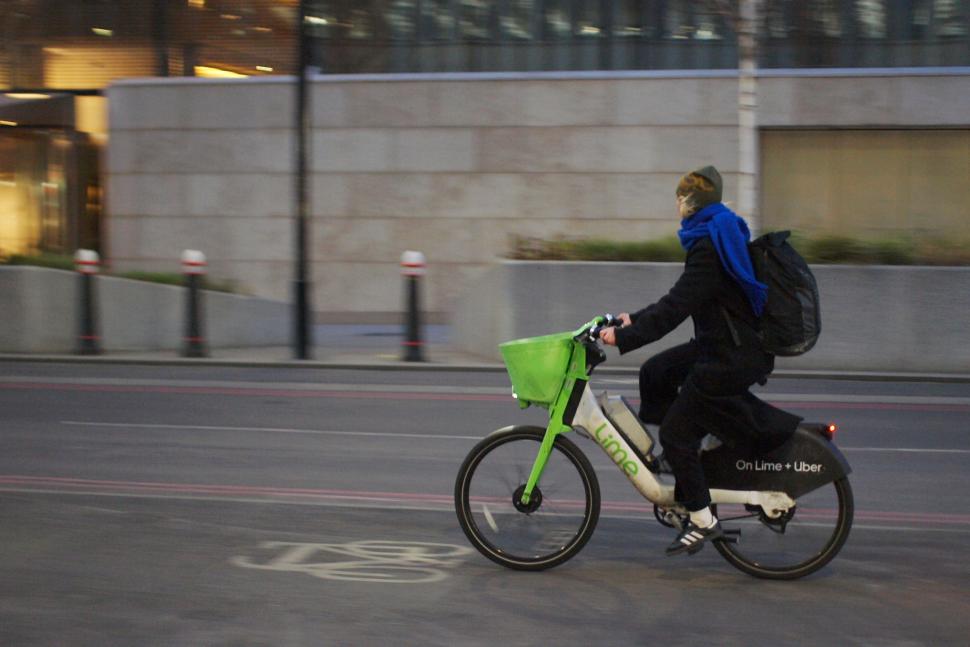 Cyclist in London riding Lime bike (credit: Simon MacMichael)
Cyclist in London riding Lime bike (credit: Simon MacMichael)
Alex Berwin from Forest said: “For many the strikes turned out to be an opportunity to try cycling and travel to work in ways that are more affordable, accessible and sustainable. Thousands of people chose to travel by bike — with many trying a Forest bike for the first time.”
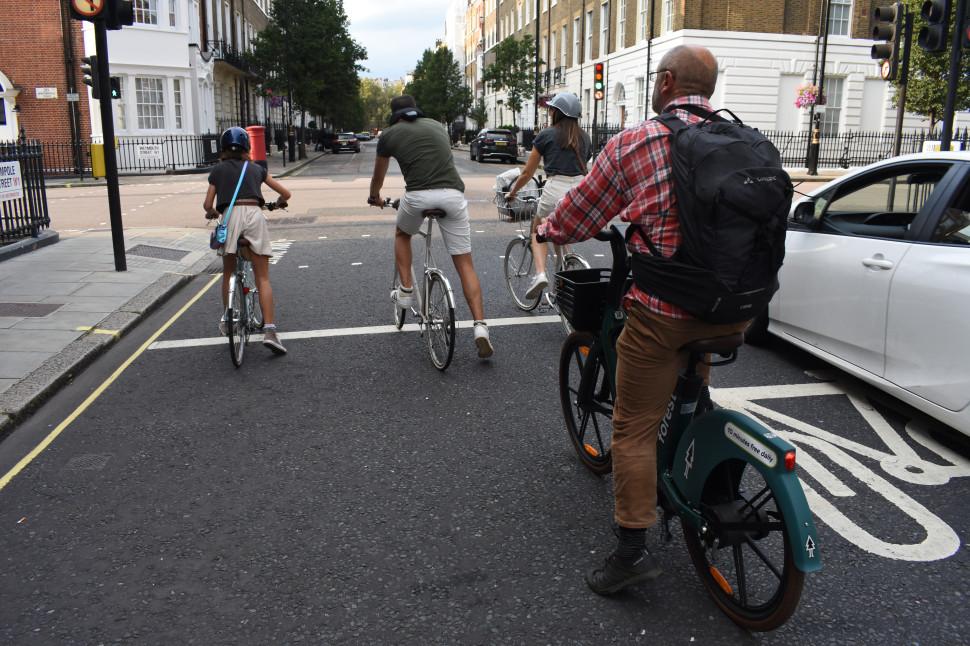 Forest bike (credit: Richard Pearce)
Forest bike (credit: Richard Pearce)
“One in five Londoners said they cycled during the strike, showing cycling is now a standard part of how we move around the city,” Alice Pleasant from Lime added. “During the strike, morning cycling trips rose by up to 74 per cent compared to early September. Average trip distance and duration also increased more as the week went on. This shift points to a growing level of confidence in cycling as a reliable, accessible, efficient way to get from A to B.”
Forest said its data shows that many first time riders will continue to cycle in future, “supporting the wider shift we’re seeing to two wheels”.
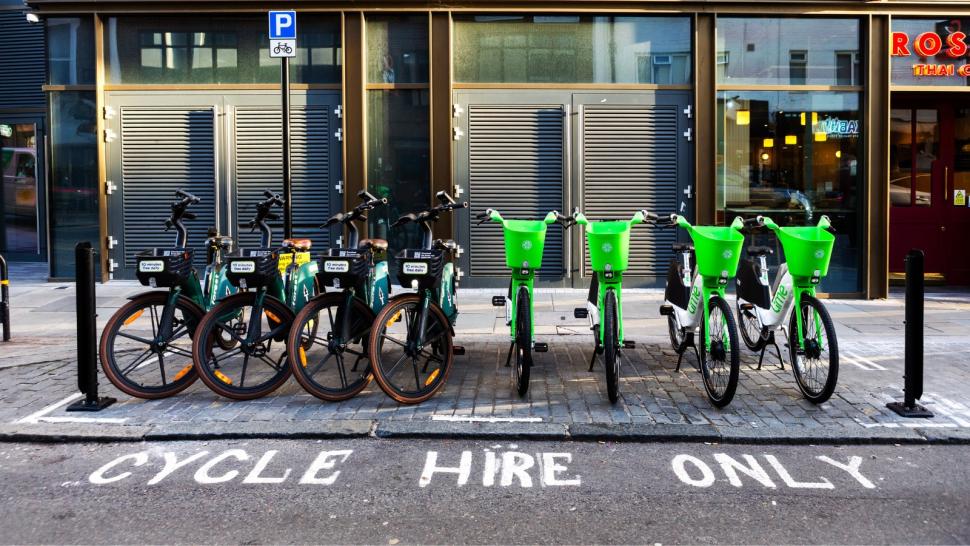 Lime and Human Forest bikes lined up in the hire bay (credit: Islington Council)
Lime and Human Forest bikes lined up in the hire bay (credit: Islington Council)
“It’s clear that the strike spike wasn’t a one off,” Forest’s head of policy said.
The study on more Londoners being more likely to consider cycling in future comes as the original London bike hire service Santander Cycles (rebranded from the Boris and Barclays days) will be sticking around under the bike’s sponsorship for at least the next seven years.
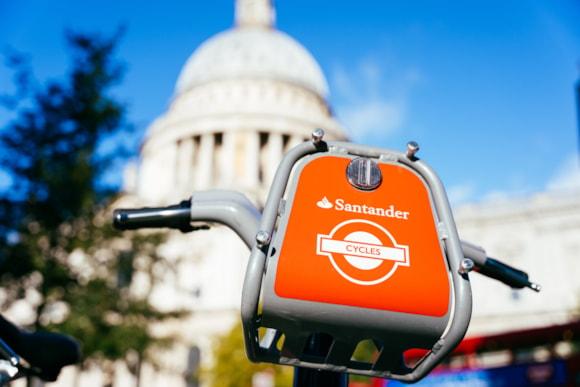 Santander Cycles photography competition (credit: Transport for London)
Santander Cycles photography competition (credit: Transport for London)
> Santander renews London hire bike sponsorship to 2032, pledges further investment
Santander has renewed sponsorship until 2032, more than 6.1 million journeys made on the bikes so far this year.
Commuting bike specialists Quella this afternoon told us the Tube strike “saw a surge in searches for commuter bikes during the disruption, with interest in single-speed commuter bikes up over 1,000 per cent in Google searches and traffic to our own site more than doubling for models such as our Edinburgh e-bike and Nero Classic.”
Quella’s general manager Josh Hale said: “It’s no surprise: when the trains stop, people still need to get to work. Cycling offers a faster, more reliable, and more affordable way of travelling, particularly as rail fares continue to rise. With Cycle to Work schemes bringing the cost of a quality bike down to less than a monthly travel card, more commuters are recognising cycling as a practical long-term choice, not just a back-up during strikes.”
Tom Fyans, the CEO the London Cycling Campaign told The Standard the Tube strikes “demonstrated the power of cycling to move people around our city safely” and called on policy makers to take this even further.
“The incredible convenience of dockless hire, the huge untapped potential as a safe, healthy transport mode that remains unfulfilled for cycling in London — with too many areas still deprived of truly safe, comfortable cycle routes, and the desperate need for more cycle capacity our routes already face.
“For more of those one in four Londoners who want to cycle more to keep pedalling, we’ll need a lot more cycle tracks, crossings, and routes.”
